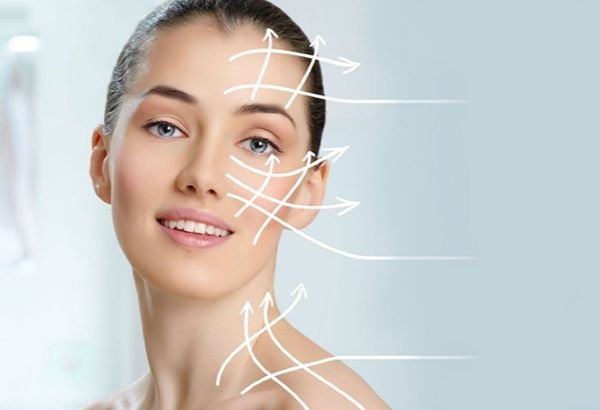Vitamin C – The Supercharger:
Vitamin C is like a supercharger for your body’s collagen production. This essential protein is the key to forming connective tissues like skin, muscles, and bones. Load up on vitamin C-rich foods like broccoli, red peppers, oranges, kiwis, mangoes, grapefruits, and lemons.

Vitamin C: The Collagen Booster
Omega-3 – The Skin Saver:
Omega-3 fatty acids are the unsung heroes of healthy fats. These essential nutrients are building blocks for cells, helping to keep your skin supple, hydrated, and firm. Find them in fatty fish like salmon and tuna, as well as nuts and seeds such as walnuts, chia seeds, flaxseeds, and hemp seeds.
Vitamin E – The Healer:
Vitamin E is a powerful antioxidant and anti-inflammatory. It speeds up wound and burn healing and is used to treat skin conditions like dermatitis, psoriasis, and acne. Almonds, sunflower seeds, spinach, avocados, pistachios, and peanuts are great sources of this vitamin.
Vitamin D-3 – The Sun Vitamin:
Vitamin D is produced when your skin soaks up sunlight. It’s then absorbed by the liver and kidneys and distributed throughout your body to aid in creating healthy cells. This vitamin is crucial in determining your skin tone. Calcitriol, a synthetic form of vitamin D, is effective in treating psoriasis. Research shows that it reduces skin inflammation and complications associated with the condition.

Calcitriol: Fighting Psoriasis
A deficiency in this vital vitamin can lead to skin conditions like eczema and psoriasis. If you’re facing skin issues, consider checking your vitamin D levels—supplementation may be beneficial.
Zinc – The Antioxidant Armor:
Zinc acts as a powerful antioxidant, and its deficiency can lead to skin problems like acne and psoriasis. Fortify your diet with zinc-rich foods such as beef, crab, oats, fortified breakfast cereals, turkey, and pumpkin seeds.
Collagen – The Skin Brightener:
Studies suggest a link between collagen supplementation and brighter, healthier skin. Collagen comes in various forms, including gummies, pills, and powders that you can mix into your favorite drinks.
If you’re not getting enough of these nutrients from your diet, consult a doctor about incorporating supplements.






























